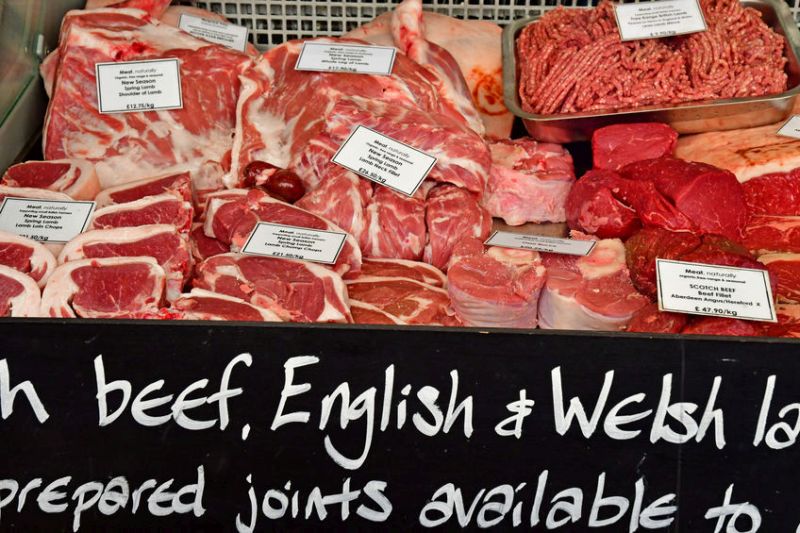
The spread of Covid-19 in the UK and its subsequent impact on the red meat supply chain is 'complex and far reaching', according to the latest market commentary.
Farmgate prices for prime sheep collapsed last week, although early sales this week suggest a small upward movement, Quality Meat Scotland said in a new update.
Prime cattle prices have held steady, although early sales this week suggest some slide in the coming days.
Looking at what is happening in the marketplace, in operational terms, abattoirs and processing plants are facing reduced staffing levels because of employees self-isolating, with estimates of 15-20% fewer staff available for work.
Additionally, requirements for two metre distancing is creating challenges on processing lines, at a minimum slowing down the speed of the lines.
Stuart Ashworth, Director of Economics Services at QMS, explained: “To maintain throughputs, longer shifts may be required and a possible reduced demand for animals, just to cope with the speed with which lines can operate."
According to Mr Ashworth, beyond the abattoir or processing line, the change in the market has been profound.
“The closure of the hospitality sector and schools has significantly displaced the market,” he said, “Kantar Worldpanel market researchers suggest more than 500m extra meals a week will need to be provided from home in the UK.”
The loss of the hospitality market will also change the balance of meat cuts required, roasts and steaks are popular when eating out, but they may be less popular in the home environment.
This will particularly be the case when the extended family cannot meet up for a family meal, QMS said in its commentary.
“The consequence of this is greater demand from the high street food shops, multiple retailers, convenience stores or high street butchers,” said Mr Ashworth.
“Kantar Worldpanel suggest that sales of fresh and frozen foods in multiple retailers increased 28% during the past four weeks to reach levels higher than seen at Christmas.”
On the export market, borders remain open but, as in the UK, restrictions imposed on people movements and the hospitality sector has severely disrupted demand.
“Consequently, for lamb, stocks which were being built ahead of Easter and Ramadan are not moving and many chills are full or close to full,” he added.
“Until these stocks are moved, demand for animals will remain low and the market price will adjust accordingly.
“With restrictions on family gatherings over the Easter period, demand for roasts, lamb or beef, may be badly affected.”
With many consumers having no or reduced income in the short term, this will severely affect what they can afford to buy, Quality Meat Scotland said.
While some who are working from home and cannot eat out may buy more premium cuts from retail shops, many who are not in work and have multiple extra meals to provide may buy more economy cuts.
Mr Ashworth said: “For processors this means the carcase balance will change and the revenue they earn for the whole carcase may diminish.”
Abattoir by-products are not immune, for example the closure of the Italian leather industry has halted demand for hides and reduced demand for transport fuel reduces the demand for bio-fuels derived from some offal products.
Mr Ashworth concluded by saying that the effects of the coronavirus is 'unprecedented': “The market will react to these changed circumstances and in the first instance has led to reductions in farmgate prices for beef and lamb," he said.
“As we settle into the new norm, market demand will begin to stabilise and the market will settle, and we may find the initial movement in prices has been an over-correction.”
